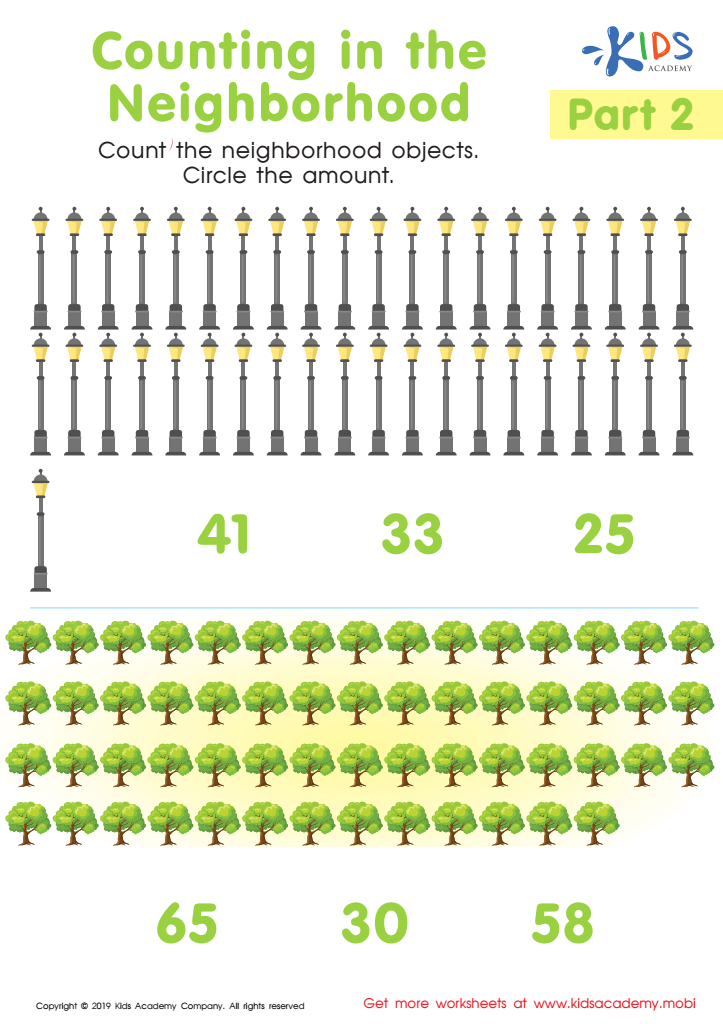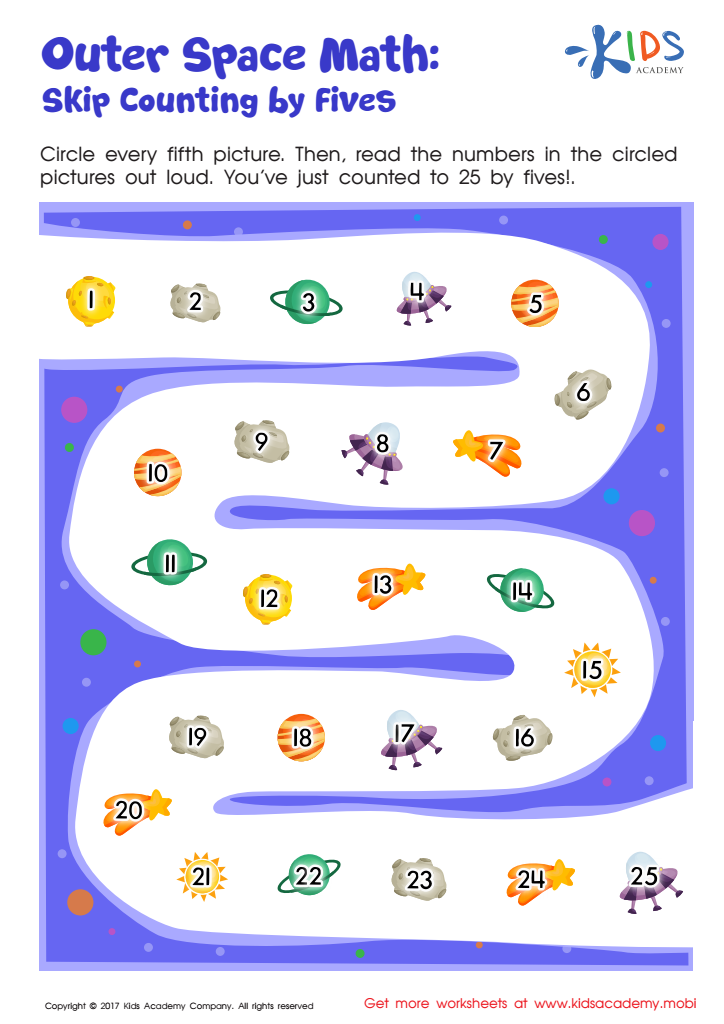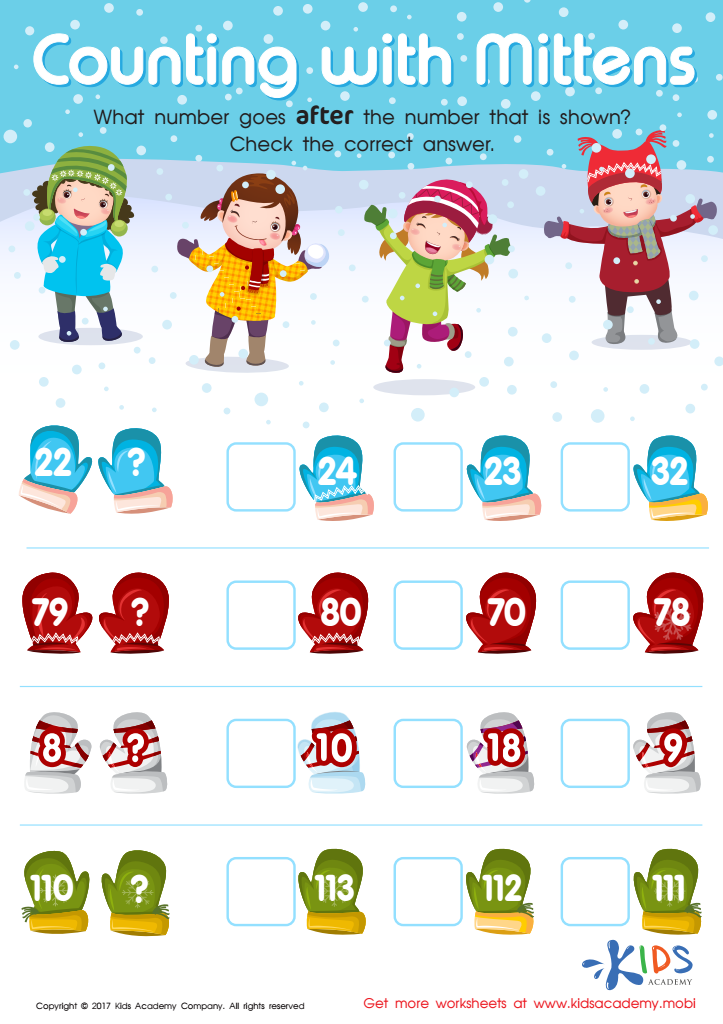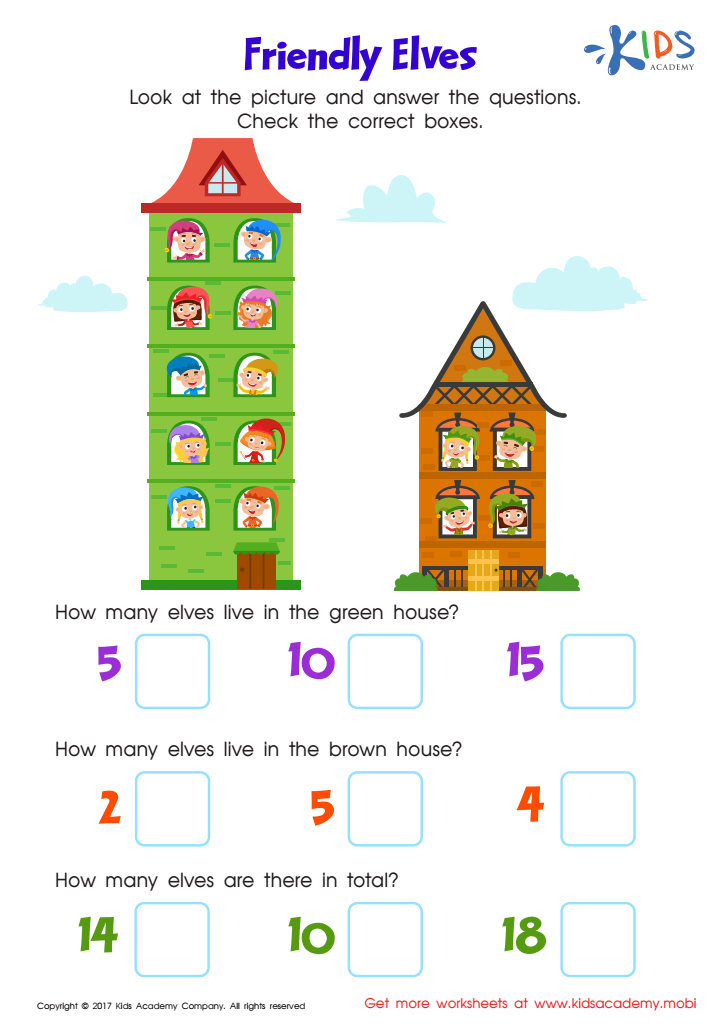Addition Practice Numbers up to 100 Worksheets for Ages 4-6
4 filtered results
-
From - To
Welcome to our engaging "Addition Practice Numbers up to 100 Worksheets" designed specifically for children ages 4-6! These worksheets are tailored to help young learners develop essential addition skills in a fun and interactive way. With colorful illustrations and varied exercises, children will enjoy practicing math in a relaxed setting. Our materials focus on building a solid foundation in addition by using numbers up to 100, ensuring kids gain confidence and proficiency. Perfect for home or classroom use, these worksheets cater to different learning styles and provide plenty of opportunities for positive reinforcement. Start your child’s math journey today!


Counting In The Neighborhood Part 2 Worksheet


Skip Counting by 5s: Outer Space Math Printable


Counting with Mittens Worksheet


Place Value: Friendly Elves Worksheet
Parents and teachers should prioritize addition practice with numbers up to 100 for children ages 4-6 because this foundational skill sets the stage for all future math learning. Early mastery of addition not only builds a child’s mathematical comprehension but also enhances their problem-solving abilities. Recognizing numbers and understanding addition fosters analytical thinking, critical for academic achievement across subjects, not just math.
Moreover, engaging with addition at this age promotes cognitive development and boosts a child’s confidence. When children gain a solid understanding of how to add, they experience success, encouraging a positive attitude towards learning. This early exposure also strengthens their ability to work with larger numbers as they advance.
Incorporating fun and interactive approaches—like games, storytelling, or hands-on activities—makes the learning process enjoyable, enhancing retention. As caregivers, nurturing a natural curiosity about numbers empowers children to explore more complex concepts later in their education. Ultimately, ensuring that young learners develop a secure mathematical foundation will equip them for future success, both in school and real-life situations, where math skills are essential. Supporting addition practice is an investment in their lifelong learning journey.
 Assign to My Students
Assign to My Students





















